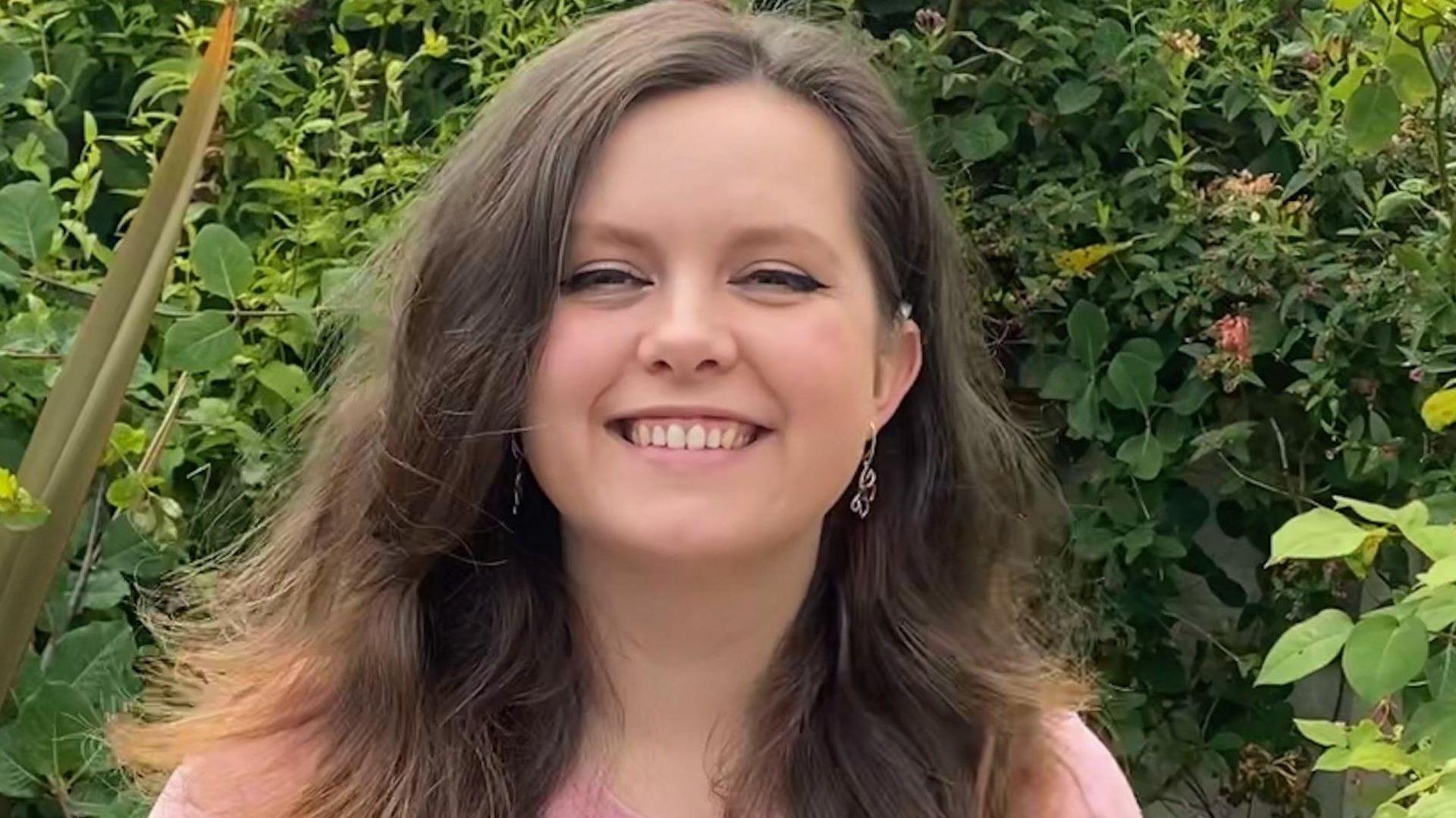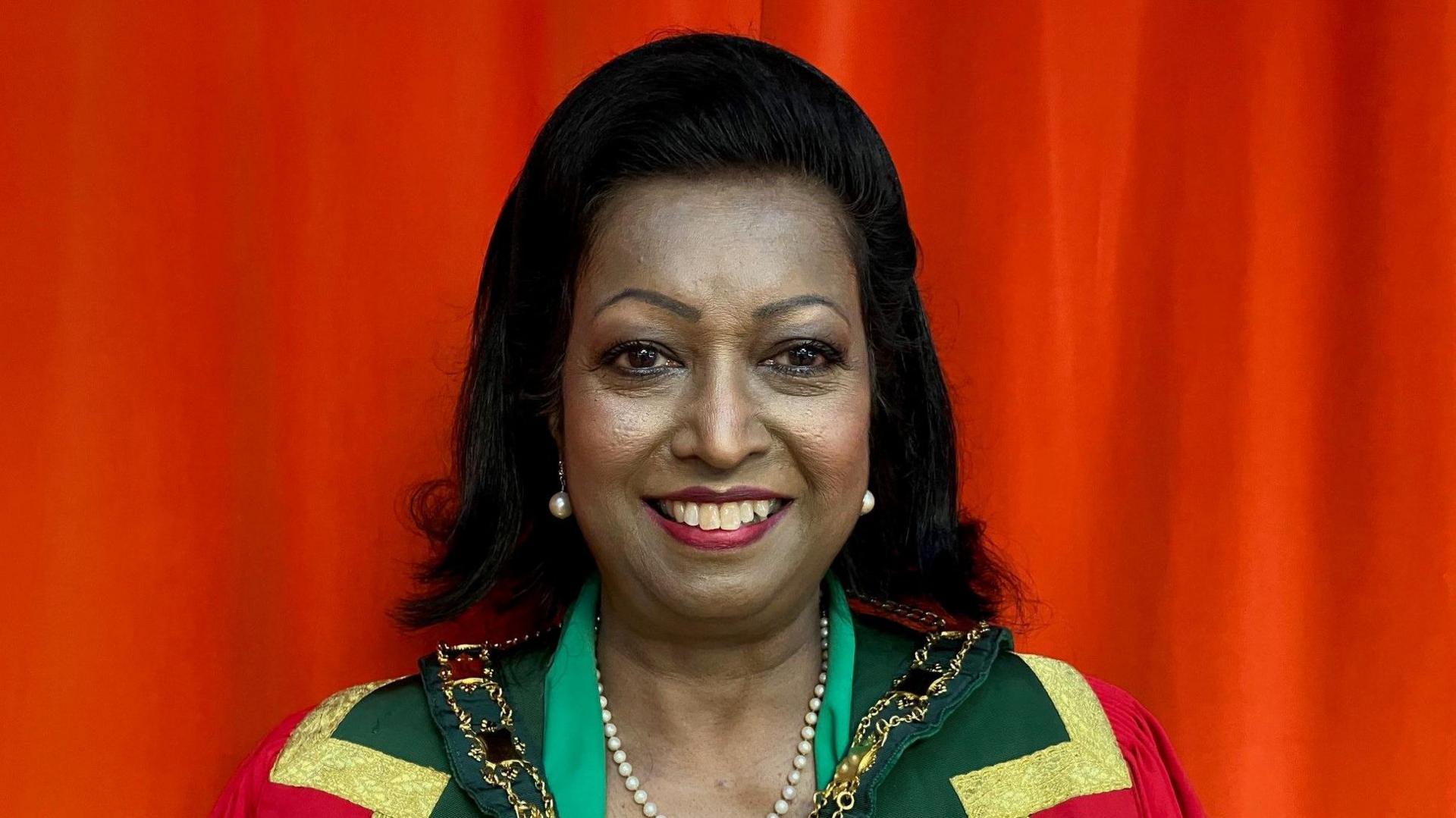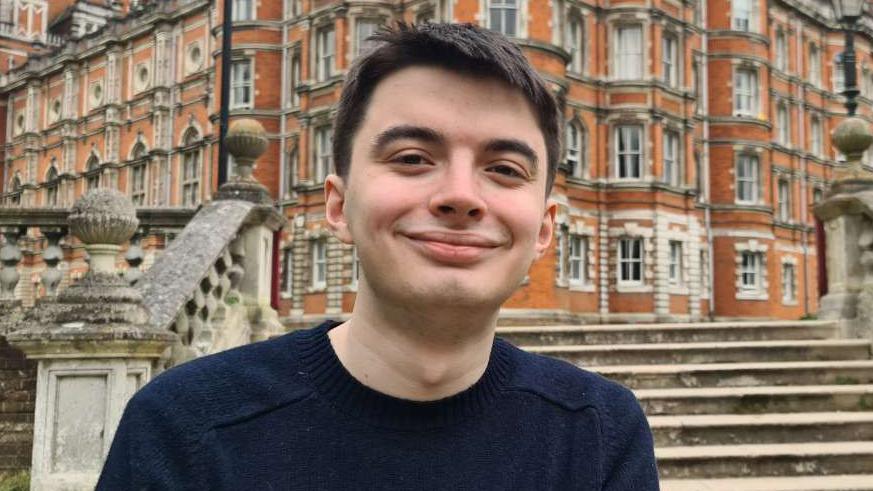NHS staff hearing loss highlighted by Covid masks

Caitlin Tanner decided to become a nurse when she was fitted with cochlear implants at 16
- Published
The use of face masks during the Covid pandemic meant some hospital staff struggled with hearing, according to an intensive care nurse.
Caitlin Tanner, a deaf nurse from Swansea, noticed how they were no longer able to lip read, making their work more difficult.
She is now researching how to help others with hearing loss remain working in the NHS.
Ms Tanner, 26, praised the Worshipful Livery Company of Wales, external - an organisation with medieval roots - for helping her make connections with other deaf academics across Europe.
Deaf woman's long road to Buckingham Palace speech
- Published23 June 2024
Parents of deaf children urge free signing lessons
- Published23 October 2023
A grant enabled her to attend a conference of deaf researchers and lecturers in Vienna, Austria, and she is now working with colleagues to "create a network of deaf academics in Wales".
Her area of research seemed an obvious one to her, as she said: "There are a lot of nurses with hearing loss.
"And many develop it as they get older. It’s a struggle to keep our nurses and it’s a struggle to get more."
She is being funded by Swansea University to work on her PhD, which is looking at the experiences of deaf and hard of hearing nurses in the NHS.
Ms Tanner, who is profoundly deaf, was fitted with cochlear implants at 16 and it was the “experience of being cared for and having the whole hospital experience” that made her decide to become a nurse.
Working in intensive care during the pandemic and the requirement to wear full PPE made her realise that hearing loss "doesn’t just affect people like me".
She hopes her research can help find ways to support people to stay in the profession and encourage others to join.
"It’s such a common disability, one in five people in the UK have it," she said.
“I’m so excited to see where this goes, hopefully it will benefit the NHS, it will benefit educational systems, it will benefit nurses themselves and patients.”

Agnes Xavier-Phillips is Master of the Worshipful Livery Company of Wales
The Worshipful Livery Company of Wales was inspired by the medieval trade and professional associations in the City of London, and it supports young people, such as Ms Tanner, in their educational journeys.
But unlike its sister organisations, the Welsh body is not associated with a particular trade and instead is the only livery company named after a nation.
Agnes Xavier-Phillips, a former midwife turned lawyer, has just become master of the company and she wants more young people to apply for the financial support it offers.
"We use the word ‘nurture’ and we do that through awards and bursaries every year” she said.
"The young of Wales are the future," said Ms Xavier-Phillips, “so whatever we can do to help the young we just feel we’re contributing to the future of Wales".

Luke Takacs at the Royal Holloway University of London
Luke Takacs, from Oakdale, Caerphilly county, won an award from the group when he had just finished an access course at Coleg y Cymoedd, Rhondda Cynon Taf, and was beginning his A-levels.
"I’ve had a lot of challenges in my life," said Mr Takacs, who is autistic and has hyper-mobility in his hands which makes it painful to write.
He received a grant of £500 for "significant literary improvement" when he was 17, and he bought a tablet computer to help with his A-level studies.
It had long been Mr Takacs’ goal to go to university and now the 22-year-old is studying history and politics at the Royal Holloway University of London.
"This year’s gone really well and it links back to that award, and that course in general, because I guess it let me get out of my shell," he said.
"I attend societies now, I hang out with friends, I can work independently."